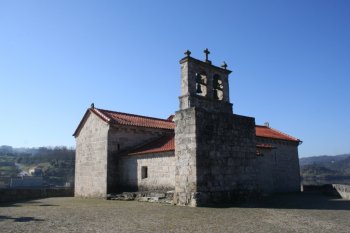Explore the best places
Heritage in Portugal
Fraga da Pena
- heritage
Queiriz
6370, Fornos de Algodres
Prehistoric settlement dating from the Bronze age, where a large semicircular defensive structure visible. Inside, were found objects in pottery, arrowheads, stone axes, necklaces, etc. Is about 750 meters of altitude.
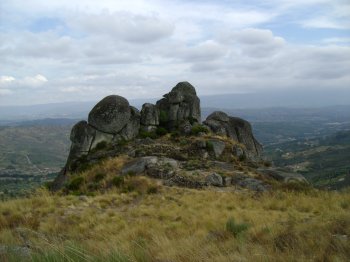
Capela de Santo Cristo
- heritage
Largo da Igreja
6370-382, Fornos de Algodres
Medieval chapel built between the 14th and the 15TH century, which still preserves numerous medieval elements, as the door in round arch, the rib vault of warheads, the buttresses and shot dogs to capitals. Highlights also include the gargoyles of Cannon and the frieze above the door and cornice, from the 16th century, and the stonework plowed of the spans. It was rebuilt in the 20th century.
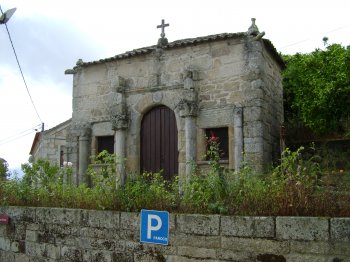
Igreja da Misericórdia de Algodres
- heritage
Largo da Misericórdia
6370-011, Fornos de Algodres
Baroque chapel consists of a longitudinal plan, with a nave, a chancel narrower and the Dispatch House located near, and with different toppings on gable roof in the nave and chancel and four waters in the adjoining House. Inside, the main altarpiece of carved johannite.
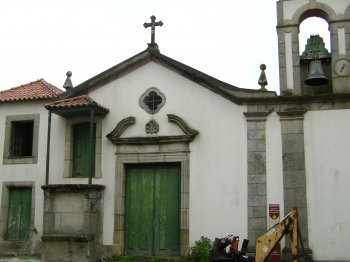
Igreja Matriz de Algodres / Igreja de Santa Maria Maior
- heritage
Largo do Pelourinho
6370-011, Fornos de Algodres
This church was probably built on the 12th century. It is composed by a simple longitudinal plan with one nave, a narrower and lower main chapel and one attached sacristy. It was rebuilt on the 17th and 18th century. Due to the several improvements done through the centuries it presents some features from different styles, such as Romanic, Mannerist and Baroque.
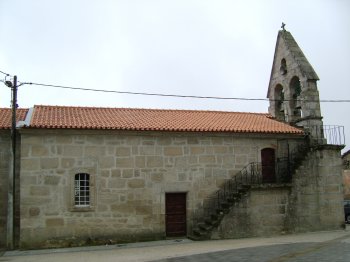
Anta do Cortiçô / Orca do Cortiçô / Dólmen da Casa da Orca
- heritage
Cortiçô
6370, Fornos de Algodres
Tapir in good condition, featuring a camera and eight Struts, some with traces of paintings and two of them listed. Keep the cover slab, visible three mainstays in the hallway, two of which tumbled.
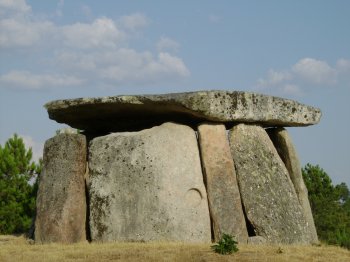
Museu da Pedra de Marco de Canaveses
- heritage
Avenida de São João, 900
4575-029, Alpendorada e Matos
Aqui poderá visitar três núcleos fundamentais: A Pedra e o Desenvolvimento Local; O Homem e a Pedra e A Pedra nas Artes. Com uma forte componente visual, estão expostos elementos essenciais ligados à pedra, desde a sua composição mineral, utilização pelo homem para os mais diversos fins, ferramentas de trabalho, aplicações ao nível artístico e a sua importância para a sustentabilidade da economia e desenvolvimento local.
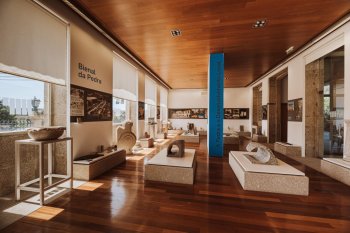
Ponte do Arco
- heritage
Rua do Arco
4635-165, Folhada
This mediaeval bridge has one only arch with narrow and long voussoirs with irregular extrados. It has abutments with triangular breakwaters and square breaker, the guards are in granite and the flagstone pavement is in granite. On the right side, a simple monument dedicated to the souls. This bridge used to connect Soalhães and Tabuaço with Amarante.
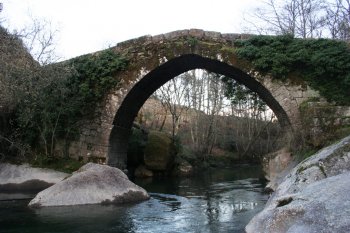
Capela da Senhora da Livração de Fandinhães
- heritage
Rua da Nossa Senhora da Livração
4625-253, Paços de Gaiolo
The current Chapel of the Senhora da Livração is what remains of the parish church of Saint Martin, significant testimony of the roaming teams of artists, in the Romanesque era. The cracks and the capitals match a solution adopted also in the churches of Santa Head, Águas Santas and Cedofeita. The nave of the Church of Saint Martin, ruined, was demolished in 1873 having been their stone reused in the expansion of the current Parish Church of St. Clement.
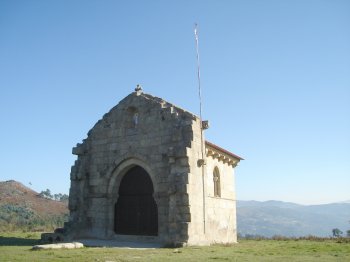
Igreja de São Martinho de Soalhães
- heritage
Avenida da Igreja, 17
4630-609, Soalhães
From the original temple, rather altered on the 17th century, it only remains the doorway with two archivolts. The interior of the church is covered up with glazed tiles from the 18th century. The classification as a national monument includes the joint of Romanic elements.
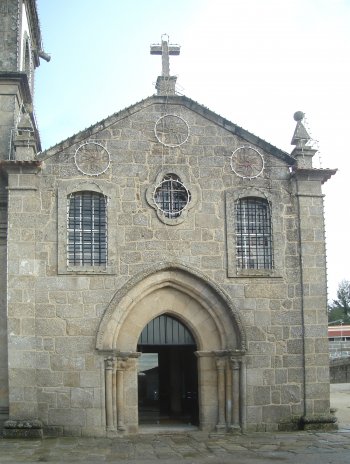
Igreja de Santa Maria de Sobretâmega
- heritage
Rua da Igreja
4635-367, Sobretâmega
The Church of Santa Maria de Sobretâmega presents a late medieval building which, however, retains a Romanesque flavor very own of this region. The location of this church, which replaced the former parish parish of São Pedro de Canaveses, due to the initiative of Queen Dona Mafalda, founder of hostels and ponte de Canaveses. In fact the actual construction of the bridge that led to the new location of the Church.
